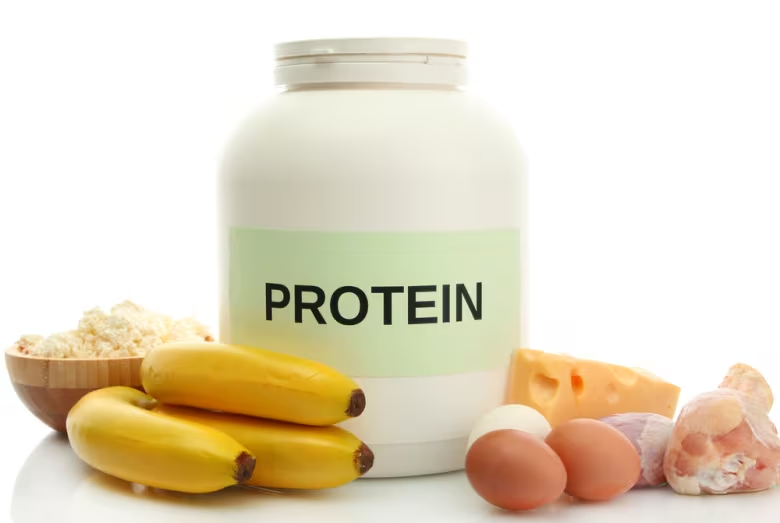When it comes to managing your weight, breakfast plays a crucial role. Starting your day with the right foods can set the tone for better energy levels, improved metabolism, and controlled hunger throughout the day. In this guide, we’ll explore the best breakfast choices that support weight management, focusing on balanced nutrition, portion control, and delicious options to kick-start your mornings.
Table of Contents
Why Breakfast Is Important for Weight Management

The Role of Breakfast in Metabolism
Breakfast is often called the “most important meal of the day” for good reason. After a night of fasting, your body needs fuel to jumpstart its metabolism. Eating a nutritious breakfast boosts your metabolic rate, helping you burn more calories throughout the day. Studies have shown that people who eat breakfast tend to have better weight control than those who skip it.
When you skip breakfast, your body may enter a state of energy conservation, slowing down your metabolism. This can make it harder to lose weight, even if you consume fewer calories overall.
Breakfast and Appetite Regulation
A well-balanced breakfast can help regulate hunger hormones like ghrelin and leptin. High-protein and high-fiber meals are especially effective in keeping you full longer, reducing mid-morning cravings and the likelihood of overeating later in the day. For instance, starting your day with eggs and whole-grain toast can be much more satiating than sugary cereals or pastries.
Skipping Breakfast: Myths vs. Facts
Skipping breakfast has been touted as a weight-loss strategy, but it often backfires. While intermittent fasting may work for some, skipping breakfast entirely can lead to energy crashes and overeating at subsequent meals. It’s not about whether you eat breakfast but rather what you eat that matters most for weight management.
Nutritional Essentials for a Weight Management Breakfast
The Importance of Protein
Protein is a game-changer when it comes to weight management. It helps build lean muscle, supports metabolism, and keeps you feeling fuller for longer. Incorporating protein-rich foods like eggs, Greek yogurt, or lean meats into your breakfast can prevent mid-morning hunger pangs and stabilize blood sugar levels.
High-Fiber Foods for Sustained Energy
Fiber-rich foods like oats, whole grains, and fruits provide lasting energy and aid digestion. Fiber also slows the absorption of sugar, helping you avoid spikes and crashes in your blood sugar levels. A fiber-packed breakfast ensures that your energy lasts through the morning.
Healthy Fats: Friend, Not Foe
Don’t shy away from healthy fats in your breakfast. Avocados, nuts, seeds, and nut butters are excellent choices. These fats are not only satisfying but also help your body absorb fat-soluble vitamins and support brain health.
Smart Carbohydrate Choices
Carbohydrates often get a bad rap, but they’re an essential part of a balanced breakfast. The key is to choose complex carbs like whole grains, which provide steady energy, instead of simple carbs found in sugary cereals and pastries.
Top Breakfast Foods for Weight Management

Eggs: A Powerhouse of Protein
Eggs are among the most nutrient-dense foods you can eat. Packed with high-quality protein and essential nutrients, they’re versatile, affordable, and satisfying. Whether boiled, scrambled, or poached, eggs keep you full and energized for hours.
Oats: The High-Fiber Champion
Oats are a breakfast staple for good reason. Rich in beta-glucan, a type of soluble fiber, they help lower cholesterol and keep you feeling full longer. Pair your oatmeal with fresh fruits and a sprinkle of nuts for a perfect balance of nutrients.
Greek Yogurt: Low-Calorie and Satisfying
Greek yogurt is a creamy, protein-packed option that’s lower in sugar than regular yogurt. It’s perfect for weight management because it’s low in calories but high in satiety. Add some berries and a drizzle of honey for a naturally sweet and balanced meal.
Quick and Easy Breakfast Recipes

Protein-Packed Smoothie Bowls
Smoothie bowls are a quick and customizable option for busy mornings. Blend protein powder, Greek yogurt, spinach, and frozen berries for a nutrient-rich base. Top with granola, chia seeds, and sliced fruit for added crunch and flavor.
Overnight Oats for Busy Mornings
Overnight oats are a lifesaver for anyone with a hectic schedule. Simply combine rolled oats, your choice of milk, and a spoonful of chia seeds in a jar or container. Add natural sweeteners like honey or maple syrup, and layer with fruits such as berries or banana slices. Refrigerate overnight, and you’ll have a ready-to-eat, fiber-rich breakfast waiting for you.
This recipe is not only convenient but also endlessly customizable. You can mix in nuts, seeds, or even a dollop of almond butter for added protein and healthy fats. Plus, the slow-digesting carbs in oats provide sustained energy throughout the morning.
Veggie Omelets for a Balanced Start
A veggie-packed omelet is an excellent way to start your day. Use egg whites or whole eggs, and load them with nutrient-rich vegetables like spinach, bell peppers, mushrooms, and tomatoes. Sprinkle some low-fat cheese or a dollop of salsa for flavor.
The combination of protein from the eggs and fiber from the veggies keeps you satiated, making it a perfect option for weight management. Plus, it’s a great way to sneak in an extra serving of vegetables early in the day.
Tips for Building a Healthy Breakfast Routine
Meal Prepping for Success
Planning and preparing your breakfast in advance can be a game-changer for maintaining a healthy routine. Dedicate a few minutes the night before to prep your meal—whether it’s chopping fruits, portioning out yogurt, or setting up your overnight oats.
By having your breakfast ready to go, you eliminate the temptation to grab unhealthy, calorie-laden options on your way out the door. Consistency is key, and meal prepping ensures you start every day on the right foot.
Portion Control Matters
Even healthy foods can contribute to weight gain if consumed in excessive amounts. Pay attention to portion sizes when assembling your breakfast. For example, a serving of oatmeal is typically about half a cup of dry oats, and a single serving of avocado is roughly one-third of the fruit.
Measuring out portions might seem tedious initially, but it’s an effective way to stay within your calorie goals and avoid overindulging.
Hydration: The Unsung Hero of Breakfast
Don’t overlook the importance of staying hydrated in the morning. Drinking a glass of water before breakfast not only rehydrates your body after a night’s sleep but also helps curb hunger. Adding lemon to your water can enhance flavor and kickstart digestion.
Pair your meal with a cup of green tea or black coffee for an added metabolism boost, but avoid sugary beverages that add unnecessary calories.
Common Mistakes to Avoid When Choosing Breakfast
Relying on Sugary Cereals
Many cereals marketed as “healthy” are loaded with sugar and refined carbs. While they might offer a quick energy boost, they often lead to mid-morning crashes and hunger. Instead, opt for whole-grain options with minimal added sugars.
Check nutrition labels carefully, and aim for cereals with at least 3 grams of fiber and less than 5 grams of sugar per serving.
Overloading on Juice
While fruit juice might seem like a healthy choice, it’s often high in sugar and lacks the fiber found in whole fruits. Drinking juice can lead to rapid spikes in blood sugar, which isn’t ideal for weight management. If you enjoy juice, limit your intake to a small glass and pair it with a high-protein or high-fiber food.
Ignoring Portion Sizes
Portion sizes are just as important as food choices. Eating a large bowl of oatmeal with multiple toppings, for example, can quickly add up in calories. Be mindful of serving sizes, and try to balance your meals with appropriate amounts of protein, carbs, and fats.
Building a Healthy Breakfast Routine
Meal Prepping for Success
Starting your day right often hinges on preparation. Meal prepping isn’t just for lunch or dinner—it’s equally transformative for breakfast. Imagine waking up and having your oatmeal, smoothie ingredients, or egg muffins ready to go. It takes the guesswork out of mornings, minimizes stress, and helps you stick to healthier options.
Batch-cooking options like egg muffins or pre-portioning Greek yogurt and granola into containers saves precious time. The act of planning and prepping can also boost your motivation to stick to your weight management goals. After all, when you’ve already invested effort, it’s easier to make the better choice.
Portion Control Matters
Even healthy foods like avocados or nuts can contribute to weight gain if eaten in excess. Weight management isn’t just about what you eat but also how much. Understanding portion sizes ensures you’re consuming the right amount of calories without overeating.
For example:
- 1 tablespoon of peanut butter equals ~90 calories.
- 1 slice of whole-grain bread averages 80–100 calories.
- A medium apple contains ~95 calories.
Mindful eating practices, such as using smaller plates or eating slowly, also support better portion control and prevent overeating.
Hydration: The Unsung Hero of Breakfast
A hydrated body functions more efficiently, especially in the morning. After hours of fasting overnight, your body craves water. Drinking 8–16 ounces of water upon waking flushes out toxins, jumpstarts digestion, and can even suppress unnecessary hunger.
Adding hydrating foods like cucumbers, watermelon, or herbal teas to your breakfast can further contribute to your hydration levels. Consider sipping on green tea for an antioxidant boost or black coffee (sans sugar) for a calorie-free energy lift.
Common Mistakes to Avoid When Choosing Breakfast
Relying on Sugary Cereals
The cereal aisle can be a minefield for those seeking weight management. Most cereals marketed to kids (and many for adults) are filled with added sugars and refined carbs that cause rapid blood sugar spikes. Even granolas, which sound healthy, often pack hidden calories.
Alternatives like unsweetened whole-grain cereals or plain oatmeal, topped with fruit for natural sweetness, are healthier and more filling options.
Overloading on Juice
Fruit juices, even 100% natural ones, are concentrated sources of sugar without the fiber of whole fruits. Drinking juice floods your bloodstream with sugar, leading to energy crashes and potential cravings.
Instead, opt for whole fruits like oranges, apples, or berries. They contain fiber that slows sugar absorption, keeping you full and energized.
Ignoring Portion Sizes
Portion sizes can easily get out of hand, even when eating healthy foods. For example, a heaping bowl of oatmeal with excessive toppings can turn into a calorie bomb. Being mindful of serving sizes, like sticking to a half-cup of dry oats or a handful of nuts, ensures you stay within calorie limits.
Conclusion
Choosing the right breakfast is essential for weight management and sets the tone for the rest of your day. From protein-packed eggs to fiber-rich oats and hydration-focused habits, breakfast is a golden opportunity to fuel your body with nutrient-dense, satisfying foods. By avoiding common pitfalls like sugary cereals or oversized portions and adopting smart habits like meal prepping and hydration, you can support your weight goals without sacrificing flavor or satisfaction.
A healthy breakfast isn’t just a meal—it’s your first step toward a healthier, more balanced lifestyle.
Frequently Asked Questions
1. Can I eat a heavy breakfast if I’m trying to lose weight?
Yes, as long as the meal is nutrient-dense and balanced with proteins, healthy fats, and complex carbs. A heavier breakfast can curb cravings and reduce calorie intake later in the day.
2. What’s the best low-calorie breakfast option?
Greek yogurt with fresh berries, a tablespoon of chia seeds, and a drizzle of honey is an excellent low-calorie yet filling breakfast.
3. Should I avoid carbs completely for weight management?
Not at all. Complex carbs like oats, quinoa, and whole grains are essential for sustained energy and should be part of a balanced breakfast.
4. How can I make my breakfast more filling without adding calories?
Incorporate high-fiber and water-rich foods like cucumbers, spinach, or chia seeds. Protein is another great option—egg whites or low-fat Greek yogurt are filling and low-calorie.
5. Can I skip breakfast if I’m not hungry in the morning?
If skipping breakfast aligns with your eating pattern (e.g., intermittent fasting), it can work. However, make sure your subsequent meals are balanced and meet your daily nutritional needs.








